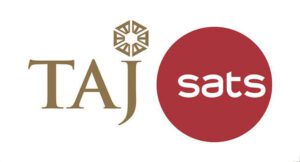Short Circuit Study
Elevate your electrical system’s resilience with our expert Short Circuit Study services. At Wire Consultancy, we empower businesses to identify potential short-circuit scenarios, assess fault currents, and implement necessary protective measures. Our team of experienced electrical engineers specialises in precise simulations and analysis, helping you safeguard your equipment, personnel, and operations.
We Strive to Drive
Engineering & Design

Trusted by






































































What is Short Circuit Study?
Short circuit study, also known as fault analysis or fault current analysis, is a critical study performed in electrical power systems to assess the behaviour and effects of electrical faults. A fault occurs when an unintended connection is made between two points in the system, resulting in a high current flow.
Short Circuit Study analyzes potential electrical faults within your power system using advanced software. It meticulously calculates the magnitude and duration of fault currents that could flow under various scenarios, identifying vulnerable points and ensuring your protective devices can handle unexpected surges. This proactive analysis safeguards personnel and equipment, minimizes downtime, and ensures compliance with safety regulations, shielding your system from the potentially catastrophic consequences of electrical short circuits.
Effective Short Circuit Study is Essential for the Following Reasons:
- System Safety: Short circuits can lead to dangerous conditions, such as overheating, arcing, and equipment damage. By identifying potential fault points, the risk of electrical accidents and fires can be minimized.
- Equipment Protection: Electrical equipment, such as transformers, circuit breakers, and cables, can be severely damaged due to excessive fault currents. Short circuit analysis helps in selecting proper protective devices to prevent damage.
- System Reliability: Short circuits can disrupt the normal operation of power systems, leading to unplanned outages. Analyzing short circuits helps in designing reliable systems and reducing downtime.
- Compliance with Standards: Many safety and industry standards require short circuit analysis to be conducted during the design and installation of electrical systems.

Applications of Short Circuit Study
- Power generation and distribution systems: Protecting critical infrastructure from devastating short circuits within power plants and grids.
- Industrial facilities: Safeguarding personnel and equipment within factories, refineries, and other industrial complexes.
- Commercial and residential buildings: Ensuring safety and minimizing disruption in office buildings, hospitals, and residential settings.
- Renewable energy integration: Assessing potential short circuit risks associated with integrating solar, wind, and other renewable energy sources.
Standards for Short Circuit Study
The standards that need to be followed for short circuit study depend on the specific industry and the type of electrical installation. Some of the commonly used standards include:
- IEEE 1584: IEEE Guide for Performing Arc-Flash Hazard Calculations provides methods for calculating incident energy and arc-flash boundary for electrical equipment. It is widely used in industrial settings.
- IEC 60909: Calculation of Short-Circuit Currents in Three-Phase A.C. Systems provides guidance on calculating short circuit currents in AC power systems.
- NFPA 70E (National Electrical Code): The NEC sets the standards for safe electrical design, installation, and inspection.
- IEC 60909-0: This standard provides general principles and requirements for short-circuit current calculations.
Choose Wire Consultancy for Short Circuit Study
At Wire Consultancy, our team of fault current analysts equipped with advance software and unwavering adherence to electrical codes. We analyze your system’s layout, operating conditions, and regulatory requirements to create accurate and comprehensive short circuit studies.
Methodology of Short Circuit Study
Performing a short circuit study involves several key steps to assess the fault currents and potential hazards in an electrical power system. At WIRE CONSULTANCY, we adhere to a comprehensive methodology for conducting short circuit study. Our approach encompasses the following essential steps to ensure a thorough and accurate assessment of your electrical power system:
- Data Collection & Validation
- Software Modelling
- Defining Fault types & Locations
- Specify Fault Impedances & Duration
- Calculate Fault Currents
- Protective Device Evaluation
- Analysing the Results & Documentations
Software & Simulation Tools We Use
There are several software and simulation tools available for short circuit study. These tools are widely used by electrical engineers, consultants, and organizations to perform comprehensive short circuit studies and ensure the safety and reliability of electrical power systems. WIRE CONSULTANCY uses the following software to conduct the study;
- ETAP (Electrical Transient and Analysis Program)
- SKM Power Tools
- DigSILENT Power Factory
- PSS®E (Power System Simulator for Engineering) by Siemens.
Similar Services
Contact
Feel free to contact us for any questions and query
Connecting with Us is Just a Click Away – Let’s Begin Your Project Hassle Free.
Our team of experienced consultants is ready to collaborate with you to achieve your engineering, safety and sustainability goals. Get in touch with us to learn more.
Our Presence
Noida
Office-03, First Floor, D-53, Sector-2,
Noida, Uttar Pradesh-201301, India
Hyderabad
SF-LM-13, Lumbini Jewel Mall
Banjara Hills Road no 2
Hyderabad 500034
For Business Enquiry
For HR Enquiry
hr@wireconsultants.com
+91-7827931701
Copyright © 2024 Wire Consultancy | All Rights Reserved
